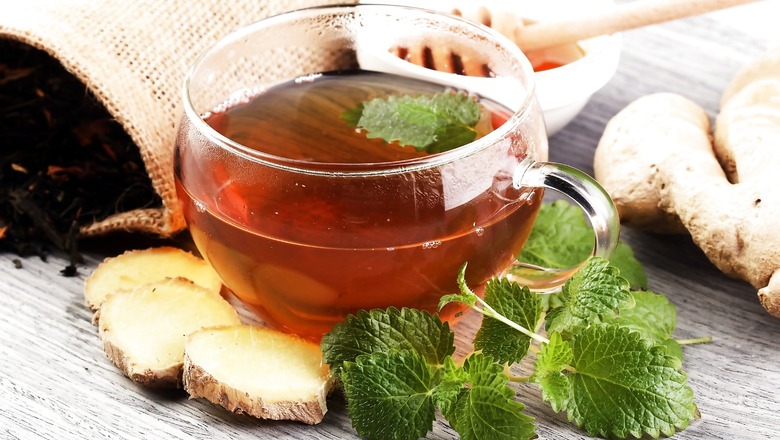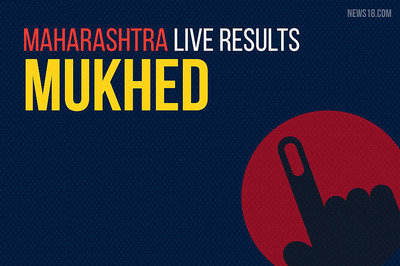
views
Self-prescription of medicines and the use of gharelu nuskhe have been a part of our lifestyle.
What’s new is the growing fad for being ‘close to nature’ and adopting alternative medicines, herbal products and natural remedies. While the intention is sacrosanct, the methods are inappropriate.
Nowadays, the process of going close to nature starts with ‘Google search’. While running a random search is not an issue, trusting the results and executing them in real life is.
Sample this: A young boy was diagnosed with Type 1 diabetes mellitus – a type of diabetes where insulin hormone is life-saving and needs to be taken lifelong.
Dr Tejal Lathia, an endocrinologist in Mumbai, understands that such a diagnosis could be heartbreaking for the parents. In search of a life which is free of insulin injections, parents are likely to fall for false promises of a cure floating all over the internet.
This family fell for the “raw food” diet as a cure for Type 1 Diabetes after extensive searching on the internet. “I was terrified of the child slipping into diabetic ketoacidosis, a life-threatening condition that happens when the body is deprived of insulin.”
The boy was brought to the hospital in emaciated condition with extremely high sugar levels after the family had stopped insulin, hoping that some traditional medicine would work. Before India could educate the public about the wiser use of the internet and search engines for health-related matters, the central government left them even more devastated.
How? By majorly pushing alternative medicines and therapies. This has ended up giving the public the confidence to pop pills, drink decoctions or play around with kitchen herbs without medical advice.
IMMUNITY THE BUZZWORD
As the pandemic struck India, ‘immunity’ became the buzzword.
According to data on the Google Ads console, the monthly search volume for the term ‘immunity boosters’ stood at 6,600 in January 2020, when there was no Covid case in India. On January 30, India confirmed its first case of Covid-19.
As paranoia kicked in, the searches for immunity boosters multiplied. From 8,100 in February to 90,000 in March 2020 and 1.65 lakh in July, Indians started their run to attain immunity.
That’s when the government handed over a guide to boost immunity and batted for home remedies to fight Covid-19. From listing simple remedies such as sipping water boiled with tulsi, ginger and turmeric to allowing self-prescription of a variety of ayurvedic, homeopathic or Unani medicinal items, the floor was left wide open.
Meanwhile, according to science, immunity is something that cannot be measured and immunology experts say there is no way for healthy adults to improve their immunity through foods or products.
WHERE DID THE GOVT GO WRONG?
The assumption that the Indian public would be able to use medicinal herbs like Ashwagandha, Giloy, Pipalli, and Guduchi well within the limits was the first mistake followed by several others.
These herbs instantly caught the attention of the public. For instance: According to data on the Google Ads console, the annual search volume for the term ‘Giloy’ stood at 6.5 lakh in 2019, which jumped to 37.5 lakh in 2020, the first Covid year.
Another assumption that the public would follow the given instructions (along with the guidelines) and apply moderation while using easily available home-based remedies or medicinal herbs was grossly incorrect.
Take a look: In 2020, when the advisory was recently released Dr M Shafi Kuchay, a senior consultant, in endocrinology and diabetes at Medanta Hospital in Delhi, had seen a patient whose eyes were extremely pale, but had no symptoms of liver disease.
Later, he found that he was consuming two tablespoons of turmeric with water, three times per day, for the last two-three months – all this to ward off Covid-19 infection.
The government’s advisories did not mention the duration of intake of the untested, potentially harmful herbal supplements, decoctions and associated practices. In the event that a person continues home-based use of such herbal supplements, the likelihood of developing severe liver injury or other dangerous toxicity events such as bleeding or kidney damage is high.
The guidelines also do not explicitly state what adverse events need to be identified, how they can be identified, and once identified, the measures to be taken to control the adverse events.
The worst guidelines for healthcare are ones that are not based on strong scientific evidence and those that do not feature a vigilance on potential harm.
HERBAL DOES NOT MEAN NO SIDE-EFFECTS
So far, more than 200 cases of Guduchi-related hepatitis, some even requiring liver transplantation or leading to death have been reported from various regions in India and published in peer-reviewed scientific journals. (Peer-reviewed papers are considered genuine and unbiased.)
Similarly, consumption of Ashwagandha has been associated with severe hepatitis as well as pruritus (itching) reactions in multiple persons and reported in peer-reviewed publications.
“If a person with diabetes starts consuming Giloy/Guduchi-based formulations, even at prescribed doses, then there is a high likelihood of that person developing severe herbal-immune mediated liver injury requiring hospitalisation, sometimes liver transplantation or leading to death in very high-risk situations,” Cyriac Abby Philips, a specialist in hepatology and liver transplant medicine in Kerala told me.
If a person with liver disease starts consuming turmeric/curcumin-based formulations, even as the prescribed dose and especially for long periods, then there is a high risk of excessive thinning of blood and associated severe bleeding events such as bleed-related strokes and gastrointestinal haemorrhage.
“This is because turmeric contains natural curcuminoids that can worsen thinning of blood in those who are already at risk of bleeding such as those with liver disease or those already on blood thinners,” Philips, who is quite vocal about the irrational use of herbal medicines in India, explained.
Another doctor, who does not wish to be named, said he has experienced seven-eight cases in the past two years where patients bled profusely in the operation theatre, as they consumed some form of either home remedies or herbal medicines which unknowingly led to blood thinning.
For Dr Kamna Kakkar, a senior resident in the department of anaesthesia and intensive care, Safdarjung Hospital, such sites have become a day-to-day affair.
She shared five instances, one after another, where all patients landed in the emergency ward in an unconscious state. “The use of home remedies is peaking and often such patients end up landing in emergency wards. From stopping ongoing medications to delaying medical diagnosis, patients and families are unaware that they are playing with their vulnerable lives,” she told me in a voice note on Whatsapp.
A 44-year-old male chose herbal medicines and home remedies to treat his diabetes and landed in Kakkar’s hospital with dangerous sugar levels. His right foot had got gangrene and it was cut to save his life. He lost his limb. Kakkar shared several similar cases.
Similarly, Dr Deepak Krishnamurthy, senior interventional cardiologist, Sakra World Hospital, Bengaluru, found out his patient had sky-high blood sugars despite being on regular medication. “What made her sugars high was the immunity booster ‘Kashaya’ with loads of jaggery in it. She consumed it daily for three-four weeks and then needed to be hospitalised for a week for sugar control.”
Kashaya is an ayurvedic beverage that is made using readily available kitchen spices and herbs. More than a dozen of doctors that I reached out prior to writing the column shared numerous stories they encounter in emergency wards on a daily basis.
The world’s best health regulators, including the American and European Union regulators, have failed miserably in their bid to control the consumption of health supplements after noticing the related side-effects.
Unfortunately, India, until now, hasn’t been able to efficiently regulate the manufacturing and consumption of allopathic drugs in India with the constant struggle to fix counterfeit and spurious drugs, curb the practice of self-prescription of medicines, and the looming threat of anti-microbial resistance.
Meanwhile, it has unleashed multiple other markets selling ayurveda, unani, siddha, homeopathy, herbal supplements and whatnot!
Read all the Latest News , Breaking News , watch Top Videos and Live TV here.



















Comments
0 comment